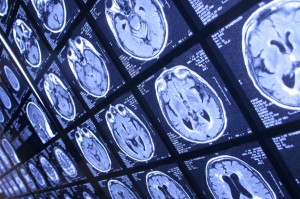A new study presented this week at the Endocrine Society’s 93rd Annual Meeting suggests that weight loss after Gastric Bypass Surgery reduces the expression of Alzheimer’s genes. Previous research has demonstrated that obesity and Type 2 diabetes increase the chance of getting Alzheimer’s disease. ScienceDaily reported that the study looked at 15 morbidly obese patients with Type 2 diabetes who underwent Roux-en-Y gastric bypass surgery. On average, the patients lost nearly 86 pounds over six months. The patients gave blood samples before surgery and six months later.
 The researchers measured the expression of amyloid precursor protein (APP), which is a precursor of beta-amyloid, protein pieces that form plaques in the brain, one of the key brain abnormalities in Alzheimer’s disease. They found that the level of APP fell by 22 percent after weight loss surgery. Expression of the messenger RNA that carries genetic information for APP decreased by an average of 31 percent, the data showed. There were also improvements in other genes related to risk of Alzheimer’s disease.
The researchers measured the expression of amyloid precursor protein (APP), which is a precursor of beta-amyloid, protein pieces that form plaques in the brain, one of the key brain abnormalities in Alzheimer’s disease. They found that the level of APP fell by 22 percent after weight loss surgery. Expression of the messenger RNA that carries genetic information for APP decreased by an average of 31 percent, the data showed. There were also improvements in other genes related to risk of Alzheimer’s disease.
We spoke with Dr. Mark Fusco, expert bariatric surgeon and Medical Director of LifeShape Advanced Bariatrics Center of Florida, to further understand this study. He explained that obesity has adverse effects on a large number of the body’s systems and functions. “Some seem easy to explain, extra weight leading to back pain and knee pain, for instance. Other obesity consequences seem harder to explain. Several previous studies have shown a link between obesity poor memory function, decreased cognitive function, and a higher rate of Alzheimer’s disease,” says Fusco.
Dr. Fusco explained that the present study attempts to answer the question of why weight reduction and weight loss surgery have been shown to improve memory and the cognitive function in the short term. “The authors found that after weight loss surgery several genes that are implicated in the development of Alzheimer’s disease have altered expression, meaning they are less active.”
“This is an important finding for several reasons,” says Fusco. “First of all, if whatever it is about weight reduction that changes the way these genes are expressed can be isolated, perhaps this can form the basis for new pharmacological treatments for Alzheimer’s. And secondly, if these short term effects could translate into a decreased rate of development of Alzheimer’s disease in patients after weight loss surgery,” Dr. Fusco concluded.






Weight Loss Studies & Clinical